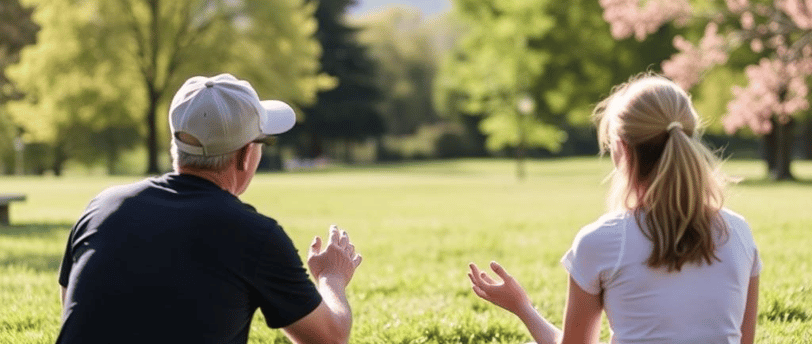Nature Therapy: How Spending Time Outdoors Boosts Wellness
🧘WELLNESS TIPS


In our fast-paced, technology-driven society, many of us find ourselves spending a considerable amount of time indoors. Whether it’s working from home, streaming the latest Netflix series, or scrolling through social media, modern life often detaches us from the natural world that surrounds us. However, a growing body of research suggests that reconnecting with nature can have profound effects on our emotional, mental, and physical well-being. Welcome to the calming and rejuvenating world of nature therapy.
What Is Nature Therapy?
Nature therapy, often referred to as ecotherapy or green therapy, involves engaging with the natural environment to improve well-being. This practice can take many forms—from leisurely strolls in the park or hiking in the mountains to gardening or simply sitting under a tree. The essence of nature therapy is harnessing the positive effects of being outdoors, allowing nature to become an essential partner in our journey toward health and happiness.
The Science Behind Nature Therapy
Researchers have been investigating the links between nature exposure and well-being, and the findings are overwhelmingly positive. Studies show that spending time in nature can reduce stress, anxiety, and depression, and even enhance cognitive function.
Reduced Stress and Anxiety: Nature has a unique way of calming our minds. A study published in the journal Environmental Health Perspectives found that spending just 20 minutes in a natural setting can significantly lower cortisol levels, the hormone associated with stress. Additionally, the soothing sounds of nature—like rustling leaves or flowing water—can create a tranquil auditory backdrop that puts us at ease.
Improved Mood: Being outdoors can work wonders for our mental health. A research review from the Journal of Positive Psychology highlights the finding that nature can elevate mood, increase feelings of vitality, and promote a sense of connectedness with others and the environment itself. Just a short stroll in a natural setting can leave us feeling refreshed and invigorated.
Enhanced Cognitive Function: Nature therapy not only soothes our emotional states but also enhances our mental acuity. Engaging with nature has been shown to improve focus, creativity, and attention span. One study found that participants who spent time in nature performed 20% better on tests measuring creative problem-solving, showcasing how outdoor time can revitalize the mind.
Physical Health Benefits: The physical benefits of nature therapy are remarkable, too. Hiking, walking, or even gardening can lead to improved cardiovascular health, better muscle tone, and increased flexibility. Furthermore, exposure to sunlight helps our bodies produce vitamin D, essential for bone health and immune function.
Embracing Nature Therapy in Your Daily Life
Incorporating nature therapy into your daily life doesn’t have to be complicated or time-consuming. Here are some friendly suggestions on how to get started:
Daily Nature Walks: Allocate at least 20-30 minutes each day to stroll through your neighborhood, visit a nearby park, or explore a nature reserve. Pay attention to your surroundings—the colors, textures, sounds, and scents that define the outdoors.
Gardening: Whether you have a backyard or a small balcony, cultivating plants can be immensely rewarding. Planting flowers, herbs, or vegetables invites mindfulness and connection to the earth, enhancing emotional well-being and offering a sense of purpose as you nurture your garden.
Nature Mindfulness: Practice mindfulness outdoors. Find a quiet spot, sit comfortably, and focus on your breath. As your mind wanders, gently guide your thoughts back to the natural environment around you. Listen to the chirping birds or the whispering trees. This practice enhances our stress-coping mechanisms and encourages a harmonious state of mind.
Outdoor Hobbies: Engage in outdoor hobbies that you enjoy. Whether it’s photography, sketching, bird-watching, or simply reading a book under a tree, these activities help to foster an even deeper connection with nature.
Group Nature Activities: Connect with others who appreciate the outdoors. Join a hiking club, participate in community clean-up events, or take part in guided nature walks. Sharing experiences with like-minded individuals amplifies the joy and cognitive benefits derived from nature therapy.
Nature Therapy for Different Populations
No matter your age or ability, nature therapy can be adapted for everyone:
Children: Encouraging children to play outside can instill a lifelong appreciation for nature. Nature play, whether it’s climbing a tree or running through a field, enhances physical health and creativity in younger generations.
Seniors: Nature therapy can also be beneficial for older adults, offering opportunities for gentle physical exercise while providing cognitive stimulation through new experiences in natural settings. Simple activities like walking in a botanical garden can be both soothing and invigorating.
Individuals with Limited Mobility: Nature therapy can be enjoyed by individuals with limited mobility. Accessible parks and gardens, as well as nature-themed art experiences, can provide sensory engagement with the natural world without necessitating extensive physical activity.
Conclusion: A Step Towards Wellness
Incorporating nature therapy into our daily routines offers a beautiful pathway towards improved well-being. By embracing the sights, sounds, and smells of the outdoors and allowing nature to soothe our minds and rejuvenate our spirits, we can cultivate healthier, happier lives. So, the next time you feel overwhelmed, stressed, or disconnected, take a moment to step outside—breathe in the fresh air, soak in the sunlight, and embrace the therapy that nature so generously provides. Your body and mind will thank you!
